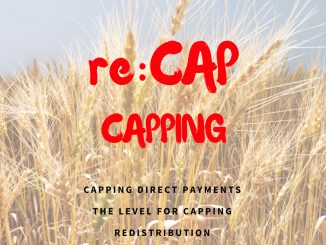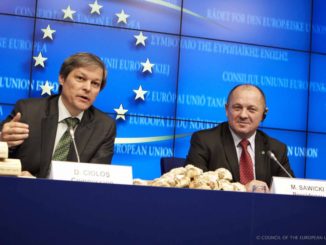On 26th and 27th April, agricultural ministers will meet in Luxembourg for their monthly meeting. You can find all the relevant documents below:
- PRESS RELEASE:http://www.consilium.europa.eu/uedocs/cms_data/docs/pressdata/en/agricult/129877.pdf
- Audiovisual note: http://www.consilium.europa.
eu/uedocs/cms_Data/docs/ pressdata/en/agricult/129783. pdf - Public debates/Public deliberations: http://www.consilium.europa.
eu/uedocs/cms_Data/docs/ pressdata/en/agricult/129778. pdf - Background note: http://www.consilium.europa.
eu/uedocs/cms_Data/docs/ pressdata/en/agricult/129774. pdf - Agenda: http://eu2012.dk/en/Meetings/Council-Meetings/Apr/~/media/Files/Council%20meetings/Agendas%20Council%20meetings/agri%20fish%20april.pdf
In terms of CAP, dicussions include:
Direct payments
Ministers will hold a public debate on direct payments within the framework of the common agricultural policy (CAP) reform. The debate will focus on special measures proposed to help particular categories of farmers, on the definition of active farmers, on capping for large farms and on internal redistribution.
Under the first pillar the Commission proposes a number of special measures to help particular categories of farmers. While proposal for voluntary coupled support seems to strike a balance, other special measures still raise questions summarised by the Presidency as the following:
• With regard to the schemes for young farmers and for small farmers how member states assess the proposed content and the mandatory nature of the schemes?
• Concerning the scheme for farmers in areas with natural constraints, how do delegations assess this option particularly in relation to pillar II-related measures?
In addition, there is a broad consensus in Council that direct payments should be properly targeted and that the targeting mechanisms should be workable, should avoid a disproportionate administrative burden and should take account of different circumstances in the member states. On the notion of “active farmer” there is considerable support for Presidency suggestion to focus on farming and, in order to avoid undue administrative burden, not to require member states to control the proportion of direct payments received by recipients compared to their receipts from non agricultural activities and to allow Member States a greater margin of discretion. On capping, the debate should focus on the following question:
• As on capping several delegations called for a simpler approach in the calculation on capping, how improvements could be made to ensure a simpler model from the outset?
On internal redistribution the Commission proposes that member states achieve a uniform level of direct payments at regional or national level by 2019. The Presidency conclusions from March 2011 (7921/11) identified the need for flexibility at national/regional level, with appropriate transitional periods to avoid disruptive financial consequences. During the debate, the Presidency will invite the delegations to comment on the impact of the proposal, the rhythm and pace foreseen by the proposal to achieve convergence, including any alternatives.
In the coming months, the Danish Presidency intends to organise further policy debates on thematic issues such as the greening of the CAP in May and the Rural development Policy in June.




